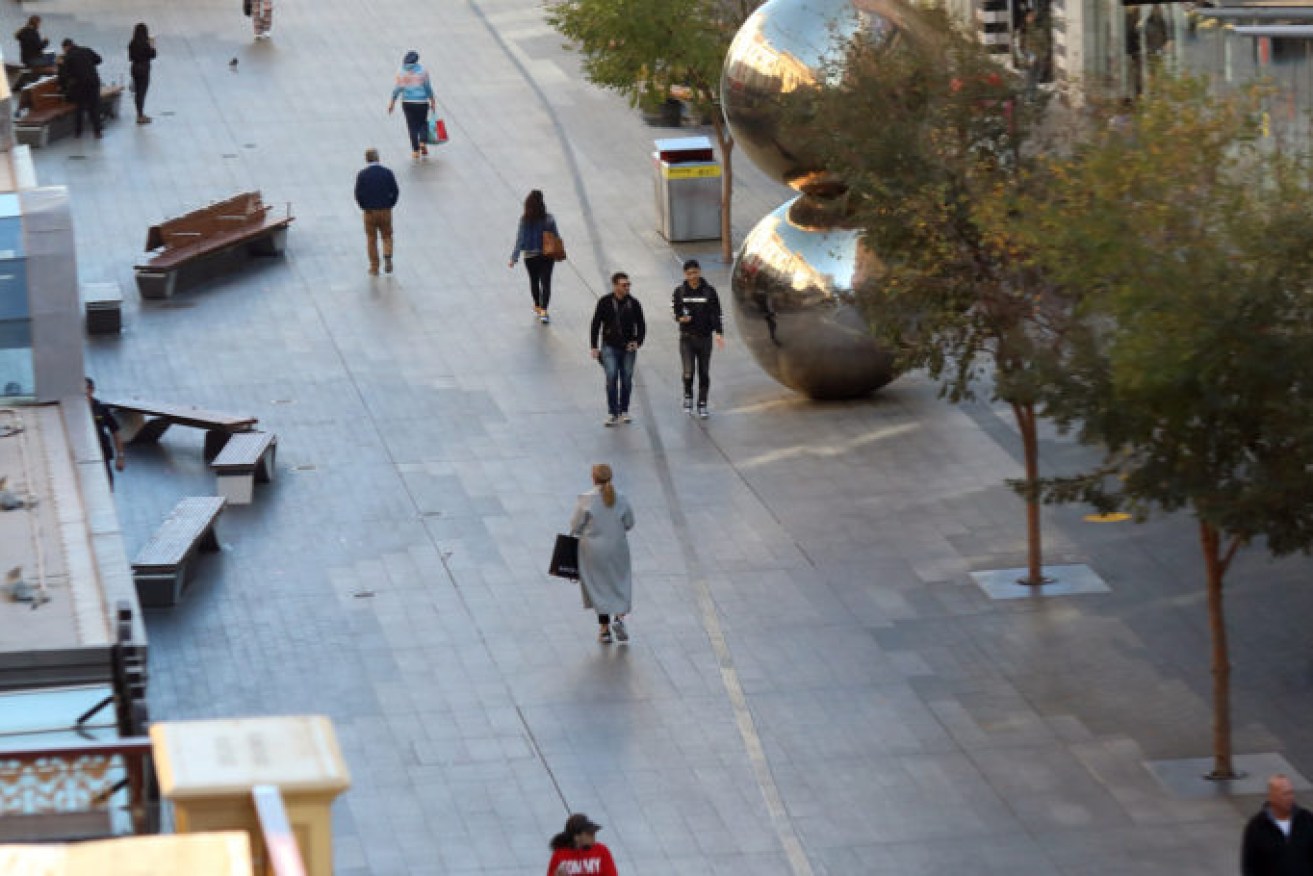SA COVID shopping slump knocks tinsel off retailers’ Christmas
South Australian retail spending slumped by $84 million in December – the biggest monthly decline since the beginning of the coronavirus pandemic – as the Omicron surge curtailed the traditional Christmas shopping frenzy.


Picture: Tony Lewis/InDaily
Retail spending in the state fell 4.1 per cent – or $84 million – to a seasonally adjusted $1,985,200,000 in December from a record high of $2,069,500,000 in November.
It’s the first time the figure has dipped below $2 billion since July and is the biggest single monthly fall since the 14.4 per cent drop between March and April 2020.
According to Australian Bureau of Statistics data released yesterday, the 4.1 per cent December decline in SA – the third-worst in Australia for the month behind Victoria and New South Wales – is also the largest percentage fall in SA from November to December recorded since the ABS began publishing the series in 1982.
However, the SA result is 1.6 per cent higher than December 2020 and 10 per cent up on the December 2019 figure, when the economy slowed before the coronavirus pandemic hit.
Nationally, retail spending tumbled 4.4 per cent in December after several months of exceptionally strong results as the economy emerged from COVID-19 lockdown late last year.
The December retail trade data followed a 7.3 per cent increase in November, a 4.9 per cent rise in October and a 1.3 per cent lift in September.
ABS director of quarterly economy-wide statistics Ben James said December’s 4.4 per cent fall was the largest monthly decline since April 2020.
However, he said December’s monthly turnover of $31.9 billion was the second-highest level in the series following a record $33.4 billion in November.
Victoria recorded the biggest slump in December retail spending – down 8.4 per cent – on the back of a record November.
Spending in New South Wales fell by 4.2 per cent, followed by SA, Western Australia, Tasmania (both 4.1 per cent), Tasmania (3.5 per cent), ACT (3.1 per cent) and Queensland (0.7 per cent).
The Northern Territory was the only jurisdiction to record a retail sales increase. Spending was up 3.6 per cent following the easing of lockdown restrictions and the introduction of lockouts that allowed more favourable trading conditions for businesses.
Five of six retail industries fell in December, led by household goods retailing (-9.2 per cent), clothing, footwear and personal accessory retailing (-17.3 per cent), department stores (-21.3 per cent), other retailing (-4.0 per cent), and cafes, restaurants, and takeaway food services (-0.7 per cent).
The falls in each of these industries nationally follows rises in both October and November.
Food retailing, including supermarkets, liquor etc, was the only industry to rise in December, up 2.2 per cent.
The peak of the Omicron wave last month in South Australia and widespread directives to work from home are not good signs for a potential recovery when January’s figures are released next month.
The State Government is encouraging employers to allow 25 per cent of their staff to work from their office, provided they maintain a distance of at least one person per four-square-metres.
Premier Steven Marshall told ABC Radio Adelaide this week the government would change its working from home advice “gradually, carefully, safely, so that we can get people back into our CBD”.
It also announced its latest business support package on Saturday, including cash grants of up to $22,000 for businesses impacted by restrictions and CBD dining out vouchers.
Marshall acknowledged that many businesses in the CBD and beyond had been doing it tough in the past month but said the latest package would help businesses keep their doors open and create a spending flow-on across cafes, restaurants, bars and retail.
“Adelaide is one of the first CBDs in the country to ease work from home arrangements post-Omicron and we had one of the best track records of any state for regional tourism in 2021,” he said.
Results from Adelaide City Council study published in CityMag earlier this month found there was 20 per cent less activity in Rundle Mall in the week of January 3 this year, reflecting “almost similar levels” to the July 2020 lockdown.
Shadow Treasurer Stephen Mullighan said the $84 million decline from November to December had resulted in “a sorry Christmas period” for local retailers.
He said it reflected the Marshall government’s failure to adequately prepare the state before opening the borders on November 23.
“Christmas is supposed to be the busiest time of year for many South Australian retailers – instead they copped an $84 million hit,” Mullighan said.
“And despite presiding over this disaster, Steven Marshall has failed to provide the support businesses need, with his business support package clearly falling short.”




